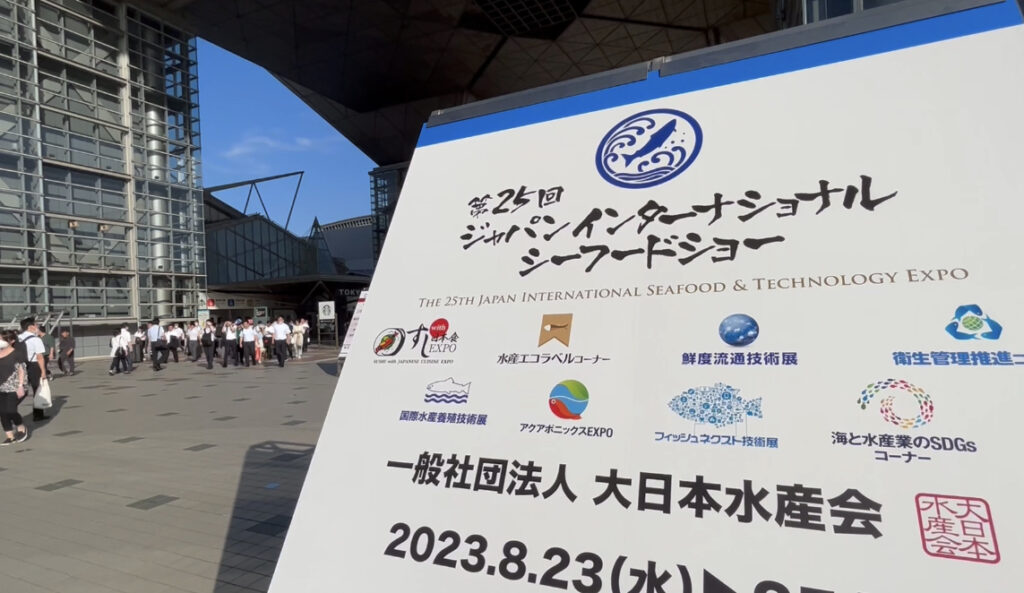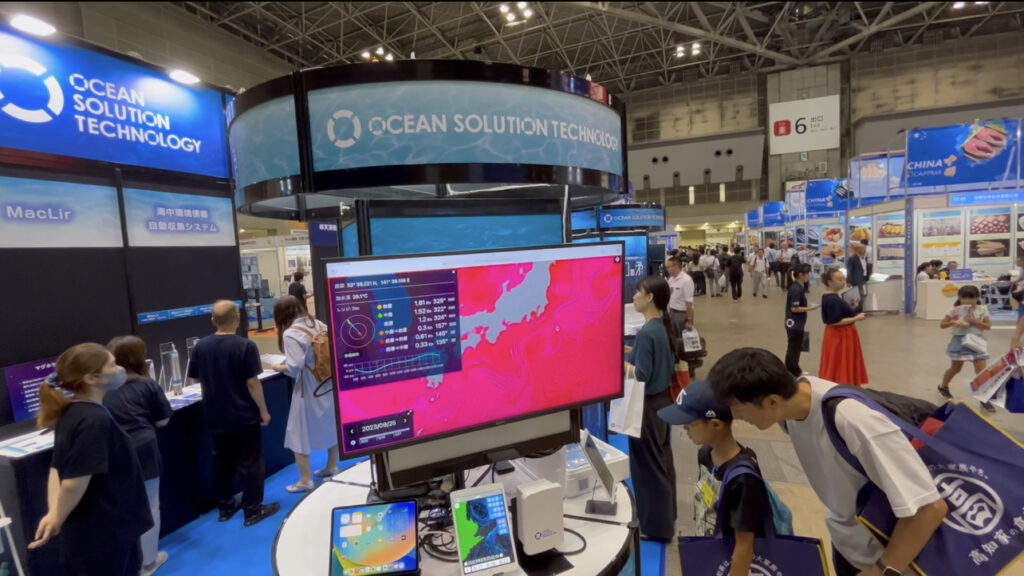



TOKYO: As Japan started to pump contaminated water into the sea from the destroyed Fukushima Daiichi nuclear power plant, the World Sea Food Trade Fair was coming to a close at Tokyo Big Sight, with participants expressing different viewpoints on the Japanese government’s decision to dump the waste water.
Many of the exhibitors were from the Asian region – Korea, Indonesia, Russia, China, Japan – with some promoting food products and others technological solutions for fishing and food production.
One Korean trader who sells organic aquaculture products said the decision was damaging, while a Japanese woman whose company imports products from China also regretted the decision.
Some Japanese participants promoting food products tried to distance themselves from any association with Fukushima while other exhibitors were reluctant to talk about the issue.
One who did go on the record was SUGA Lennon, who is in charge of marketing a GPS and GNSS system for Ocean Solution Technology. He explained that its Triton system was very precise – to within 10 meters – in indicating in real time the places where fish were caught and that the data could be transmitted to fishing cooperatives.
Similar systems were used after the Fukushima disaster to determine the best places to catch fish and to assure consumers that the fish were safe.
A representative of OTAQ-Japan presented several sonars that analyze phytoplankton in aquaculture farms to prevent proliferation and to ensure proper analysis of pond water. He said that his company did not have the clearances necessary to carry out an analysis of water in the case of radioactive pollution, but said the official sonars that are fixed close to the power station function in the same way.
The worries of Fukushima fishermen and biologists who study radioactivity is that radioactive particles will be able to attach themselves to plankton and then contaminate the food chain.